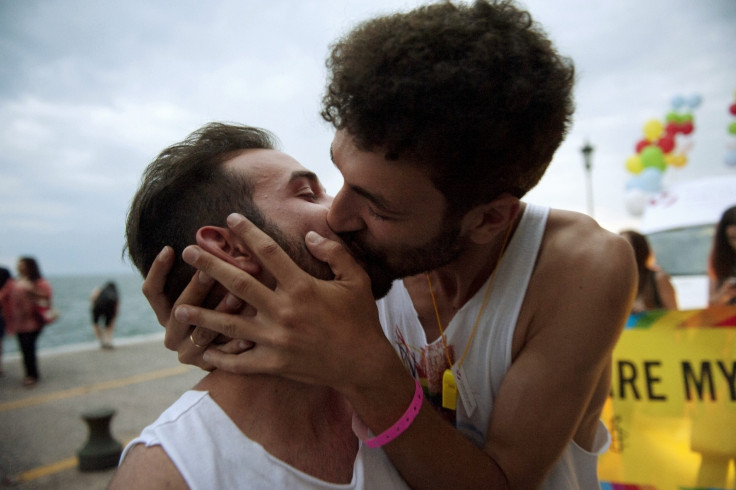Just 30 years ago, the UK banned promoting homosexuality in schools. Let's not forget this dark past
Homosexuality was partially decriminalised in 1967 - but Section 28 was introduced two decades later.
This year is the 30th anniversary of when the UK government introduced Section 28, which banned the promotion of homosexuality in any publicly funded institution. Margaret Thatcher brought in the hated clause at a time when HIV and AIDs were spreading at epidemic proportions. Since then, a lot of progress has been made in the way queerness is accepted, but teaching children about queer lives still isn't mandatory and our history is often ignored.
My formal education began the year that Section 28 was enforced (1988) and ended the year it was abolished (2003). This whole time I was submerged in a culture of silence. As a young gay boy with no-one to speak to, I wanted to die.
So I've got a lot of homosexual education to make up for.
I'm far from grasping the gravity of what Section 28 has meant for my life, but I began researching it in preparation for 2018 and I'm angry.
Thankfully, 2017 was a landmark year as the 50th anniversary of the passing of the 1967 Sexual Offences Act, leading to the partial decriminalisation of homosexuality in England. LGBT people marked this by continuing our journey towards equality, love and sexual freedom, through acts of triumph and resistance.
But as we leave behind the 50th anniversary of the passing of the 1967 Sexual Offences Act, a fog of collective amnesia thickens. The 1960s LGBTQIA+ activist movements envisioned and demanded a world where we would be a 'Queer Nation' yet we are still behind the times. In the UK, there is no permanent LGBTQIA+ museum or centre; comprehensive political representation; advertising standards to combat heteronormativity or infrastructure for LGBTQIA+ housing projects.
Internationally, there are 42 countries in the Commonwealth where it is still illegal to be queer and 76 across the world. In addition, LGBTQIA people in the UK have faced an increase in homophobic attacks by 80% in the past four years.

Without a radical shift in archiving our history, our future will continue to be sidelined. Better knowledge and understanding of our history will lead to collective pride, empowerment and action when it comes to tackling the current challenges we face.
Section 28 may have been eradicated but how has the education around queer sex progressed since? Even after Section 28 we had organisations such as the Church of England setting guidelines for sex education. Stigma still rages on when it comes to queer sex. Take the Teen Vogue on anal sex which caused a revolt.
We can and must commemorate the 30th anniversary of Section 28 and how it influences us today as loudly as we remembered the 50th anniversary of the 'Sexual Offences Act'.
We need to learn from the teachers who resisted Section 28 and educators today fighting against the police-state of education such as 'Prevent'.
We need to connect with teachers and educators to present the current situation and reclaim the teaching of sex and take charge of how it should be taught.
From educating about fetishes; LGBTQIA+ sexual history including cruising places and places of sex work; sexual health - which involves an honest discussion on HIV and PrEP; sex beyond the binary; safe cruising, as well as confronting chemsex.
As queer people we are never put in charge of the issues that affect us the most. So join us for a year of action as we celebrate how far we have come and recognise what we still need to do.
'Jenny Still f*cking lives with Eric and Martin': Section 28 Tribute Night is on 18th January 2018
Dan Glass is an award-winning activist and founder of Queer Tours of London - A Mince Through Time which runs the Bang Bus, the capital's LGBT+ bus tour.





















